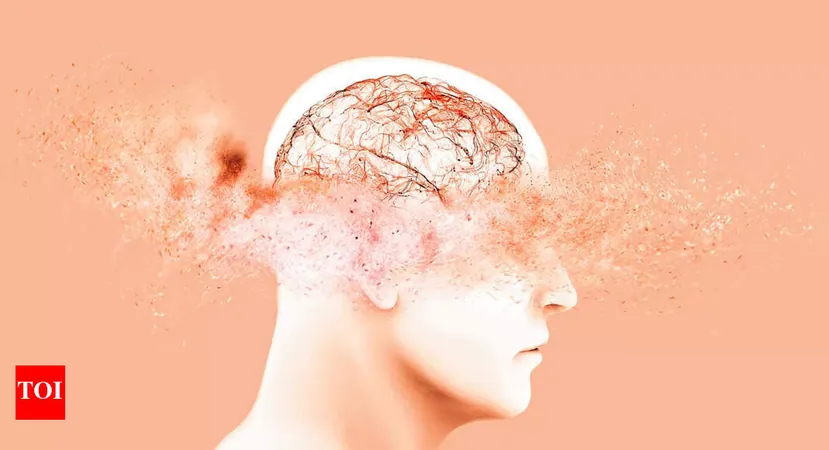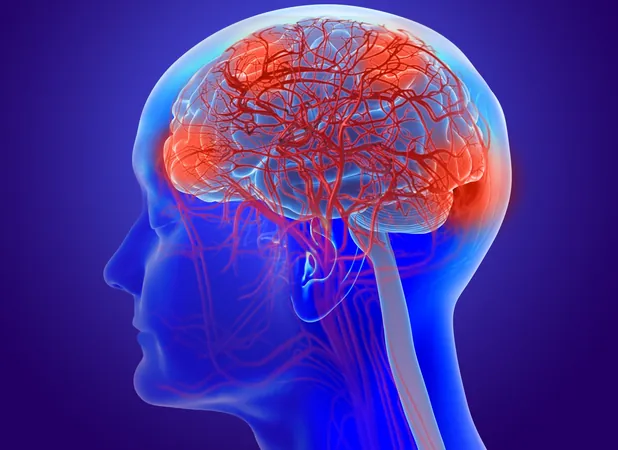
Staying in Bed After a Stroke? It Might Hurt Your Memory!
2025-05-29
Author: Sarah
A shocking new study reveals that spending too much time in bed after experiencing a mild stroke or transient ischemic attack (TIA) could actually harm your cognitive abilities, including memory and thinking skills!
In an insightful investigation published in the prestigious journal *Neurology*, researchers focused on 422 adults, averaging 66 years old, from Edinburgh and Hong Kong. These individuals had recently suffered a mild stroke or TIA. Just one to three months following their health event, they underwent brain scans, filled out sleep questionnaires, and took cognitive assessments.
The results were clear: those who remained in bed longer reported lower scores on tests measuring their cognitive abilities. Alarmingly, many of these individuals exhibited brain changes linked to dementia and the risk of a second stroke.
What Exactly Is a Stroke?
A stroke occurs when blood flow to a part of the brain is interrupted, depriving brain tissue of essential oxygen and nutrients. A TIA, often dubbed a 'mini-stroke,' involves a temporary blockage that can clear up within minutes or hours. However, it serves as a critical warning sign for potential future strokes.
The Connection Between Sleep and Cognitive Function
Interestingly, while a good night's sleep is generally crucial for mental and emotional well-being, the study emphasizes that not all bed time is created equal—especially after a stroke. Participants who spent extended periods in bed were not just having difficulty sleeping; they were likely experiencing fragmented sleep or underlying sleep disorders.
Researchers noted that simply being in bed longer didn't necessarily translate to actual sleep quality. Both prolonged time in bed and extended sleep duration resulted in increased chances of experiencing brain damage—particularly in small blood vessels—and lower cognitive scores.
Expert Insights on Sleep and Brain Health
Dr. Joanna M. Wardlaw, a study author from the University of Edinburgh, points out the importance of these findings. "Disturbed sleep may indicate adverse brain health, even for those who have experienced mild strokes or TIAs. While many understand that not getting enough sleep can lead to health issues, fewer realize that oversleeping or staying in bed too long might have equally detrimental effects," she explained.
Moreover, the study uncovered that individuals who slept longer had more instances of microhemorrhages—tiny brain bleeds—and signs of white matter damage in their brains.
What’s Next?
This thought-provoking research calls for further inquiries into the effects of prolonged sleep on individuals who haven’t had strokes or TIAs. Additionally, understanding how to improve sleep patterns post-stroke may help mitigate some harmful effects.
In conclusion, while sleep is essential for recovery, balancing bed time with active cognitive engagement may hold the key to better outcomes for stroke survivors. Stay alert, stay engaged, and don’t let your bed become your brain’s worst enemy!




 Brasil (PT)
Brasil (PT)
 Canada (EN)
Canada (EN)
 Chile (ES)
Chile (ES)
 Česko (CS)
Česko (CS)
 대한민국 (KO)
대한민국 (KO)
 España (ES)
España (ES)
 France (FR)
France (FR)
 Hong Kong (EN)
Hong Kong (EN)
 Italia (IT)
Italia (IT)
 日本 (JA)
日本 (JA)
 Magyarország (HU)
Magyarország (HU)
 Norge (NO)
Norge (NO)
 Polska (PL)
Polska (PL)
 Schweiz (DE)
Schweiz (DE)
 Singapore (EN)
Singapore (EN)
 Sverige (SV)
Sverige (SV)
 Suomi (FI)
Suomi (FI)
 Türkiye (TR)
Türkiye (TR)
 الإمارات العربية المتحدة (AR)
الإمارات العربية المتحدة (AR)